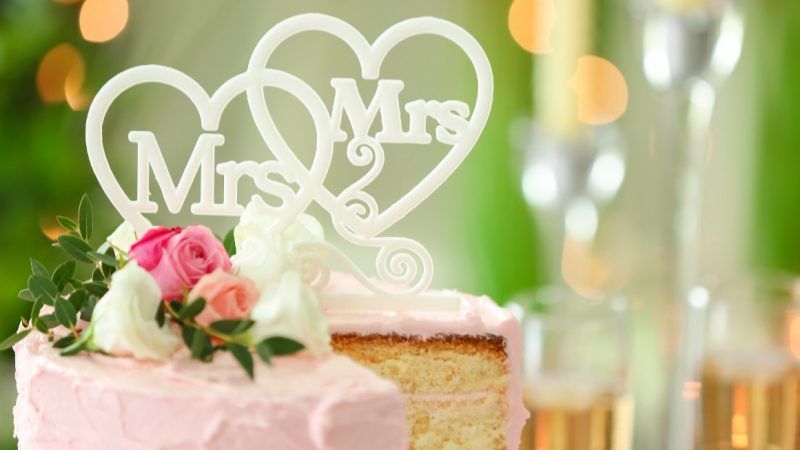Supreme Court Orders Oregon To Reconsider Gay Wedding Cake Case
SCOTUS wants to see anti-discrimination laws applied without religious bias.

The Supreme Court today ordered Oregon to take another look at a case where state officials fined a couple $135,000 for refusing to bake a wedding cake for a lesbian couple.
Bakers Aaron and Melissa Klein owned and ran Sweetcakes by Melissa in Gresham, Oregon. They ran afoul of Oregon's public accommodations laws in 2013 when they refused to bake a wedding cake for a same-sex couple. The Kleins stated that they opposed recognizing same-sex marriages for religious reasons. In 2015, the state's Bureau of Labor and Industries ruled against the Kleins and fined them. The Kleins shuttered their bakery but continued to fight against the ruling.
Last year, the Supreme Court took on a similar case coming out of Colorado called Masterpiece Cakeshop v. Colorado Civil Rights Commission. The court ruled 7-2 in favor of bakery owner Jack Phillips, who, like the Kleins, declined to make a wedding cake for a same-sex couple because he has religious objections to gay marriage.
But in the Masterpiece Cakeshop decision, the justices sidestepped the question of whether baking a cake was an expressive act protected by the First Amendment, and whether requiring a baker to make gay wedding cakes is a form of compelled speech. Instead, the justices found that members of Colorado's Civil Rights Commission expressed religious bias against Phillips and did not serve as an appropriately neutral arbiter in his case. The Supreme Court therefore reversed the ruling against Phillips.
The Kleins asked the court to take their case, and the Supreme Court granted their petition only to vacate Oregon's ruling and send the case back to the Oregon Court of Appeals to be reheard in light of the Masterpiece Cakeshop ruling.
This isn't exactly a win for the Kleins. The Supreme Court wants Oregon to review the case and make sure the decision against the Kleins was not influenced by antireligious bias. The couple has claimed that the commissioner of Oregon's Bureau of Labor and Industries showed bias during the case by saying that his "goal is to rehabilitate" the couple.
Kicking the case back down suggests that the Supreme Court is reluctant to decide whether cake-making and floral-arranging are artistic, expressive actions protected by the First Amendment, which is what plaintiffs like the Kleins and Phillips have argued. The agencies who've penalized them, meanwhile, want the Supreme Court to rule that they are obligated to serve gay customers under the state's public accommodation antidiscrimination laws, regardless of how they personally feel about gay marriage.
We should expect to see more court cases like these. In fact, based on how the Oregon court rules, we could see this very case heading back to the Supreme Court in a couple of years.
Read more here about the absurdly overwrought legal and emotional claims by the rejected couple that I found mockworthy back in 2015 and how the state actually attempted to punish the Kleins with additional financial penalties for speaking out in public to defend their position. The Cato Institute filed an amicus brief supporting the Kleins, asking the Supreme Court to consider whether cake-baking was a form of artistic expression. Read their argument here.

Show Comments (141)